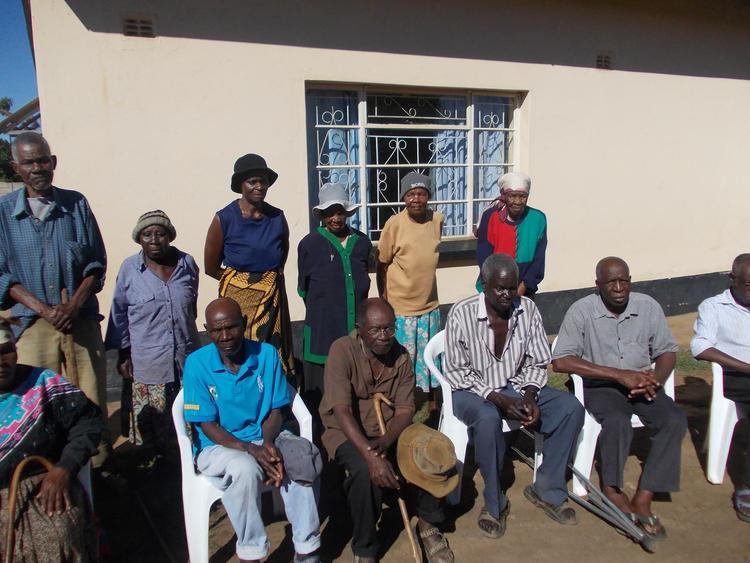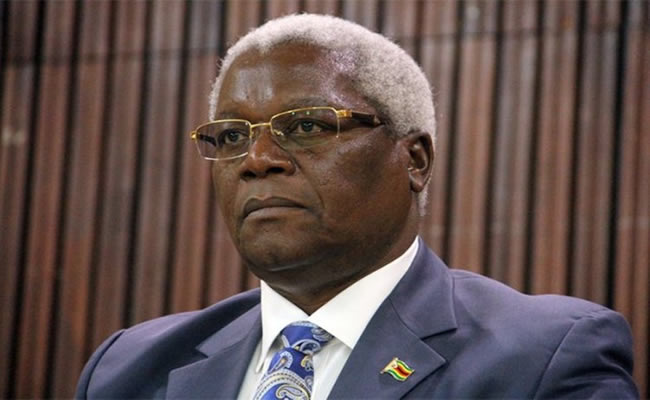Elderly people’s homes in sorry state


Charity Ruzvidzo —
The sombre atmosphere that welcomes you upon arrival at Bako Redonhodzo Old People’s home in Highfield, one of Harare’s oldest suburbs is unsettling.
Some of the elderly people talk amongst themselves in low voices as they hide from blazing sun rays under a tree shade.
Others sit quietly in a big room which serves as the living room watching television.
Hopelessness is written all over their faces, a feeling unexpected of a group of people who have presumably seen most in life.
The makeshift reception area is a demarcation of the kitchen and the aged desk is unattended.
For a place that is supposed to provide a haven for the elderly, service provision for the elderly is curiously slow. The dejected aura at Bako Redonhodzo represents plays out at most other old peoples’ homes dotted around the country.
Service provision and care for elderly has declined and most facilities are dilapidated.
Lobbyists for the care of the elderly say lack of food, shelter, clothing, drugs and other basic amenities are now widespread in most homes.
Adonis Faifi, programmes manager at HelpAge Zimbabwe, an organisation catering for the needs of senior citizens says most elderly people do not have enough food.
“The majority of old people’s home are not able to provide adequate food for the elderly. They are forced to skip meals and at worst go a day without eating,” he said.
“There is need to mobilise funds to ensure the welfare of the elderly .The government through social services is mandated to provide monthly grants to the elderly. However, this has not been the case, leading to the shortage of basic necessities.”
Although there is a provision that people over the age of 65 can consult at a public hospital for free, they still have to pay for medication which is sometimes unavailable in these institutions.
“Senior citizens can see doctors free of charge. The challenge comes when they are diagnosed and they have to get drugs. They can’t afford to buy drugs and this makes them helpless,” the HelpAge lobbyist said.
Healthcare experts say elderly people are prone to health risk and infections.
Prevalent ailments include diabetes, stroke, poor vision, hearing impairment and high blood cholesterol. They say that in addition to physical needs, the elderly have emotional, intellectual and social needs to be catered for.
Faifi said many of people in homes are immigrants who came to work in farms and mines before independence that lost contact with their relatives forcing them to seek refuge in care centres for the elderly.
A matron at Bako Redonhodzo refused to comment on the welfare of the elderly at the home and referred all questions to her superiors.
Social welfare experts say mismanagement of funds donated by well-wishers is another critical factor to the poor state of elderly homes in the country.
The challenges have not spared even the dead.
“Sometimes when someone dies there is no transport to take them to the mortuary. Others are buried in their clothes or put in a sack cloth since the money to buy coffins may not be available,” Faifi said.
Economic hardships have weakened communities and family-level arrangements for caring and supporting older people.
“Families are no longer able to provide food for extended families. We find that some of the people in homes have relatives who are still alive but can no longer take care of them due to unemployment,” the HelpAge official said.
Companies which used to offer assistance to the elderly are facing numerous problems forcing them to cut corporate social responsibility budgets.
“Before the economic challenges in the country, companies would donate to the elderly homes. This has since changed as most companies have shut down and some cannot even pay their own workers. Its no longer possible for them,” Faifi said.
“Last year over the Xmas period we appealed for assistance from a number of companies but only two managed to offer support. Support for the elderly has declined sharply.”
With indications that the winter season may be harsh, there may be need for timely intervention.
“Most elderly persons do not have adequate clothes and blankets. As winter nears we fear an increase in death cases caused by the cold,” the lobbyist for the care of the elderly said.
The situation is however different at people’s old homes which cater for the majority of whites and other affluent blacks.
“There is a huge difference in homes that cater for the white elderly here in Zimbabwe. For one to stay at the home they are required to make a payment .This is used for their sustenance,” said Mr Faifi.
He urged government to have a specific budget allocation for the care of the elderly.
“The state of elderly homes in the country is very bad, older people should not have to feel neglected. There is need for the government to create a levy meant for the elderly. This will go a long way in improving the homes,” said Mr Faifi.
Currently, Zimbabwe has 166 registered elderly homes. According to HelpAge, older people in Zimbabwe are estimated to be 760 000 or six percent of the population.
Outside the homes, most elderly people are taking care of orphans who lost their parents to one cause or the other.
In addition to fragile livelihood, weak social security support they face violence and abuse especially older women. Even the more affluent elderly are often abandoned and discarded in old-age homes to live out their lives.
The government however has not turned a blind eye to the plight of the aged.
In 2012, the Older Persons bill was signed into law.
The Act aims at paving way for selected social protection mechanisms and an older persons fund to be set aside for such purposes.
Through this Act, a commission or board will ensure the smooth implementation of the older persons act as well as addressing other emerging issues affecting senior citizens in Zimbabwe.
Apart from these provisions, the act is meant to bring with it respect and recognition of the knowledgeable elders. Due to the dilapidation of the social fabric, older persons are no longer recognised as important and equal members in society.
However, there has been little government budget allocation to implement the law probably due to the fiscal constraints faced by the country.
A 1997 Poverty Assessment Survey revealed that 78, 5 percent of the elderly in Zimbabwe were classified as poor or very poor.
This means they need constant assistance to get through life from their families, support organisations and the government.
Zimbabwe can take a leaf from South Africa which has more than three million elderly South Africans who rely on old age grants given by the government to 60 years and above-Zimpapers Syndication. – Zimpapers Syndication








Comments